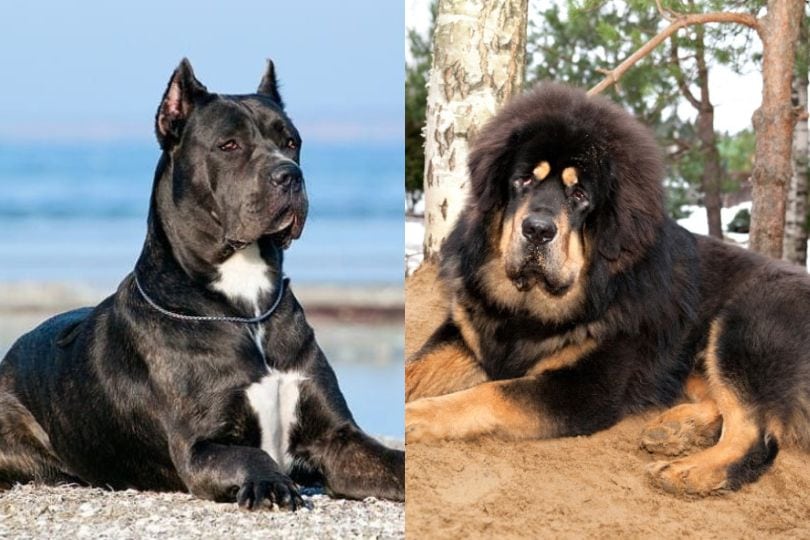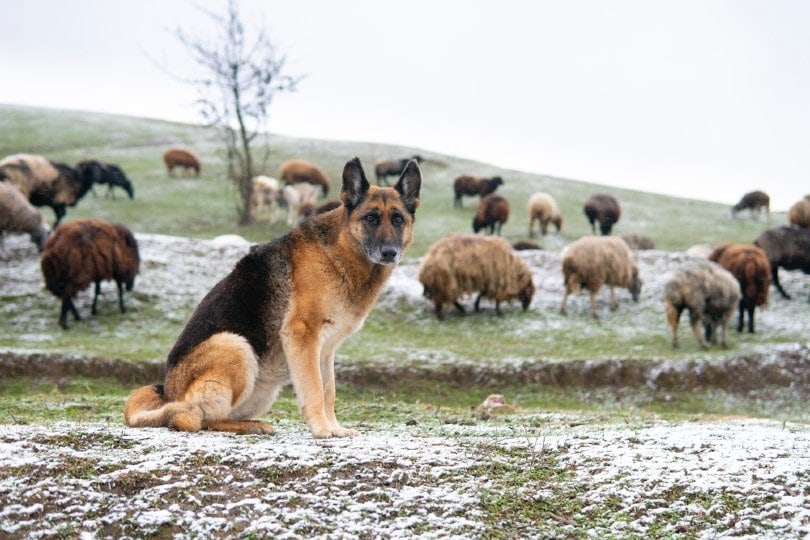Can Dogs Eat Cornstarch? Vet Reviewed Facts & FAQ
Updated on
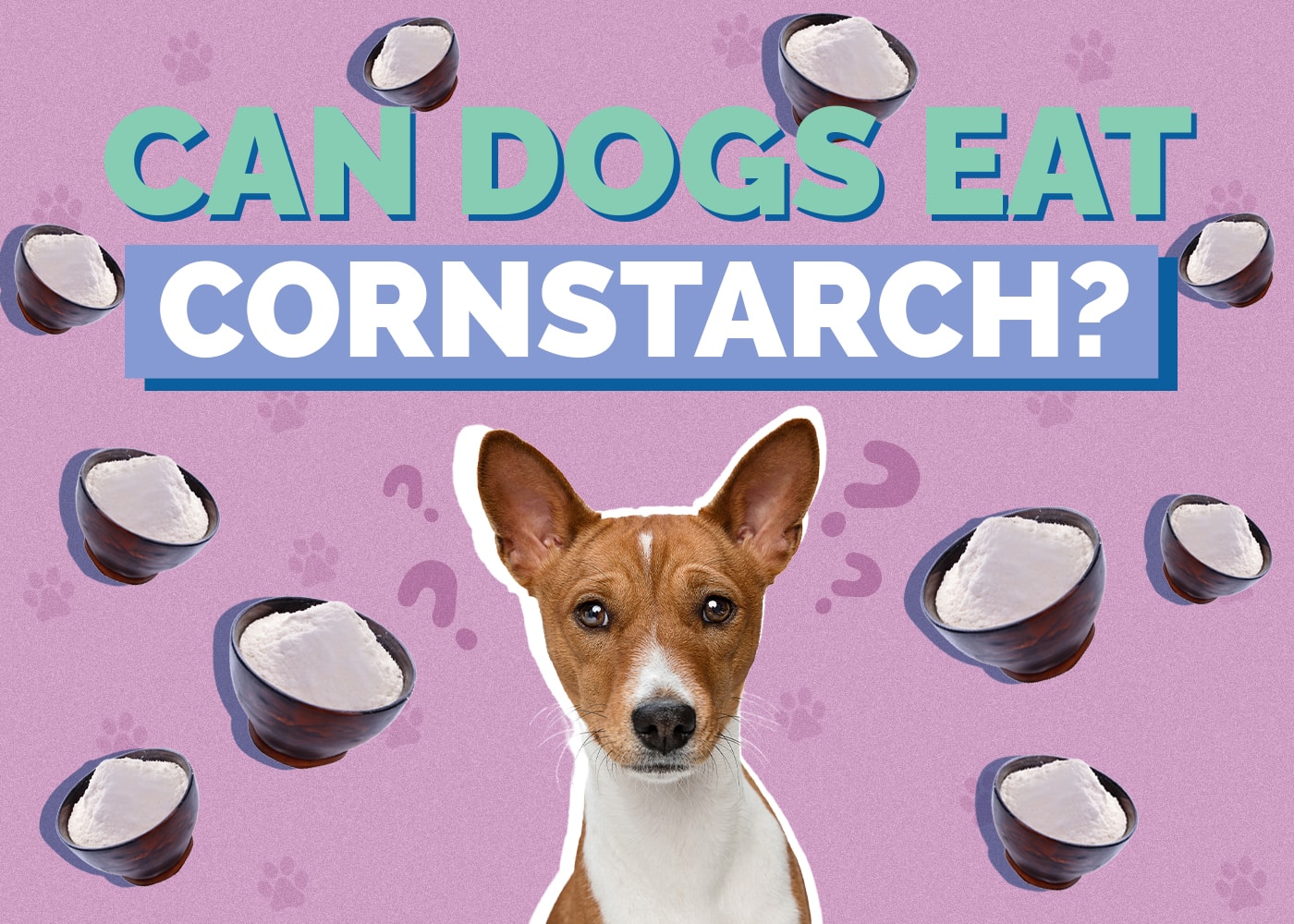
Cornstarch is a unique ingredient made from, of all things, the endosperm of kernels of corn. It’s often used to thicken sauces and is a ubiquitous part of most American kitchens. Cornstarch is also used in many dog foods and treats, which begs the question; can dogs eat cornstarch, and how healthy is it for them?
The answer is that, although it’s non-toxic for dogs, cornstarch could cause your canine companion various digestive concerns and, in some cases, respiratory irritation. If fed a lot of cornstarch, your dog could also become obese, and the risk of cancer or heart problems increases. Lastly, as there are ever-increasing numbers of dogs with allergies, cornstarch could cause an allergic reaction in yours, although the chance is slight.
Now that you know that dogs can eat cornstarch, but it could be problematic for them, you probably have other questions about this subject. Can you use cornstarch to thicken homemade dog food, for example, and is starch toxic for dogs? To find out, please keep reading! We have answers, advice, and tips below!
What, Exactly, Is Corn Starch?
Like all living things, plants contain energy, and a corn plant gets its energy from the endosperm of its kernels. This is what is used to make corn starch, and it was first invented in the 19th century as an aid to doing laundry. Because it’s a starch, and starches absorb water, cornstarch can make things thicker, like sauces, stews., etc. Also, because it’s made from corn, people and animals with corn allergies might be affected by cornstarch.
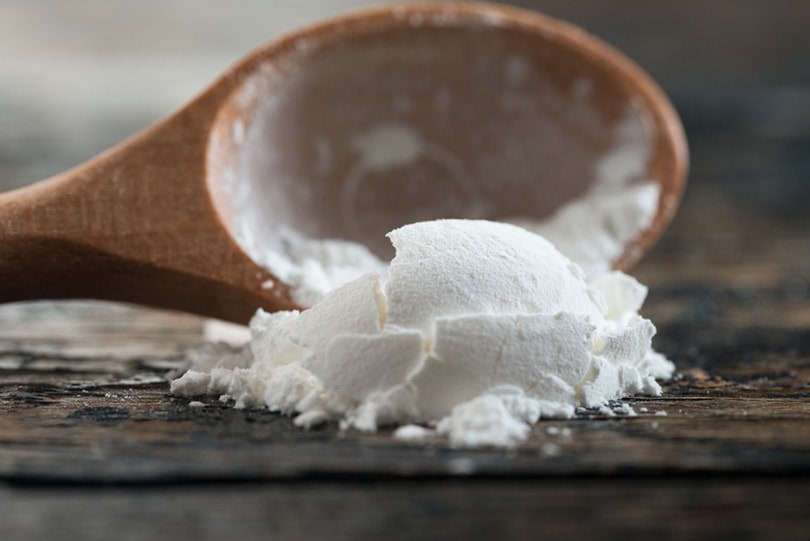
Is Cornstarch Used to Thicken Dog Food?
Cornstarch is used to thicken foods of many kinds. That includes dog food, and many brands use cornstarch rather than wheat and other flours that contain gluten. Cornstarch is used as a filler also because it’s loaded with carbohydrates.
Lastly, cornstarch is an excellent anti-caking agent and ensures that dog foods don’t stick together in large clumps. If you feed your dog store-bought kibble, the chance that they have eaten cornstarch is nearly 100%. You can also use a small amount of cornstarch at home to thicken any foods you make for your dog, although it’s unnecessary in many cases.
Is Starch Toxic for Dogs?
Dogs have been eating starches for a long time, proving that starch in and of itself isn’t toxic for them. However, you should note that since it’s high in carbohydrates, giving your dog a lot of starchy foods is not recommended. One major reason starches aren’t good for dogs has nothing to do with cornstarch itself but what’s sprayed on corn while in the field, including pesticides and fungicides.
Plus, most corn crops today are genetically modified, which destroys anything in the corn that’s good for the GI tract. Last but not least, dogs don’t need much starch in their diets. Yes, they provide energy, but so do fat and protein, which are far healthier in most cases than starch.

Are Some Dogs Allergic to Starch?
Typically, most dogs won’t be allergic to cornstarch, usually because they have little or no protein. Other starches might cause some problems, however, including potato starch, wheat starch, and starches from other grains. Again, though, allergies to starches aren’t commonly seen in dogs.
What Happens if a Dog Eats Too Much Cornstarch?
Although not common, some dogs are allergic to corn and thus also allergic to cornstarch. What’s fascinating is that their reaction to cornstarch is unique for all dogs. Some won’t be affected by cornstarch at all, while others may have a moderate reaction to it. Some of the signs you might witness if your dog has a cornstarch allergy include the following:
- Itching
- Biting their paws more than normal
- Diarrhea
- Vomiting
- Licking themselves obsessively
- Stomach cramps
- Hives (red and itchy skin bumps)
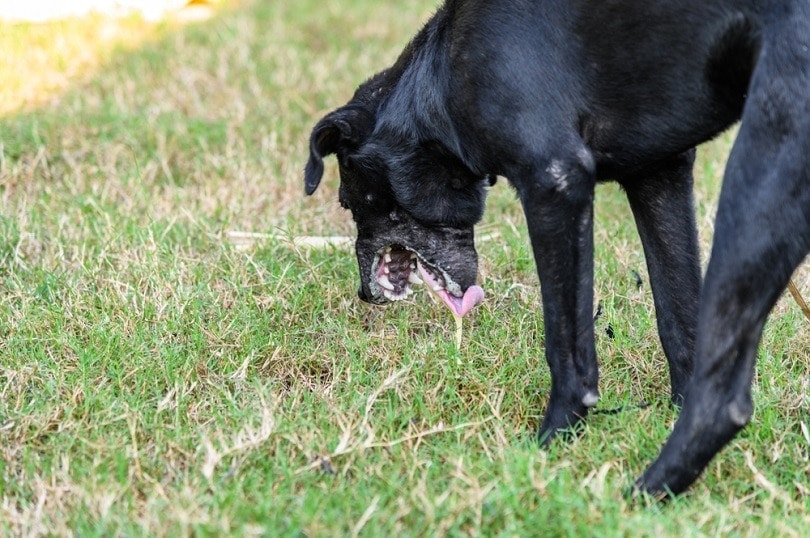
Which Foods Trigger Dog Allergies the Most?
Here’s a fact; people have far more allergies than dogs. That’s a good thing because it means you can feed most dogs the typical kibble without any fear that they will have a reaction to it from cornstarch or any other ingredient. However, dogs do occasionally suffer from allergies to different foods. Those foods include:
- Beef
- Chicken
- Eggs from chickens
- Milk and dairy products
- Soy products
- Wheat products
If you look closely at the preceding list, you’ll notice that many proteins exist, including beef, chicken, and eggs. The fascinating fact is that dogs’ most common foods that cause allergic reactions are proteins, not starches or carbs.
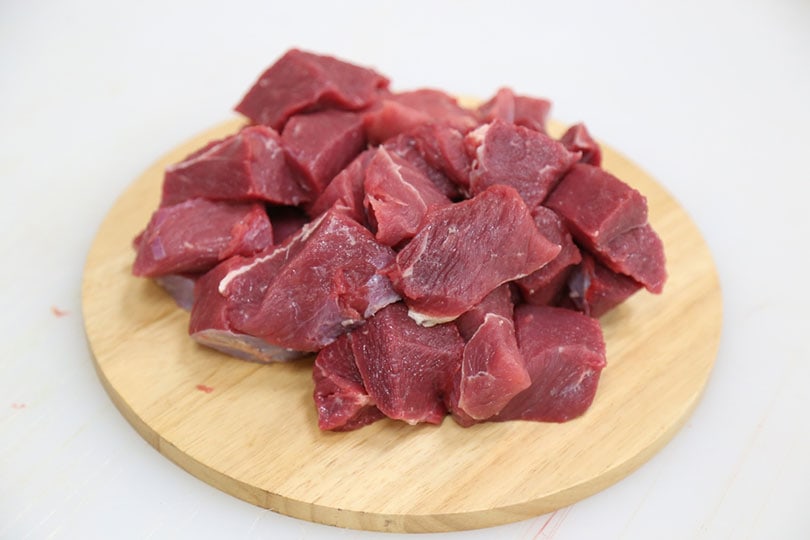
Are there Starches That Are Healthy for Dogs?
Some starches provide a bit of nutritious nutritional value for dogs and can be given to them to increase the nutrients in their diet. Unfortunately, carbohydrates, including starch, make up 30% to 70% of most store-bought dog kibble.
The good news is that some starches give them some extra nutrients, including brown rice, oat, pearled barley, rice, and millet starches. What’s also interesting is that scientists have found that dogs are less allergic to cornstarch than corn flour.
Cornstarch Spikes Your Dog’s Blood Sugar Levels
One of the most damaging aspects of cornstarch is that, when eaten, it causes a spike in your dog’s blood sugar levels. Indeed, cornstarch has a higher glycemic index (GI) than regular corn because the more you grind corn, the higher the sugar amount will be after each grinding. Sugar is something your dog does not need and can cause your pet to become obese, which is why kibble with little or no cornstarch is recommended.
Which Dogs Should Stay Far Away from Cornstarch?
Cornstarch isn’t toxic for dogs, and it would be highly unusual for a dog to die from cornstarch. However, giving some dogs too much cornstarch is still problematic. They include dogs already suffering from conditions like obesity and pancreatitis (inflammation of the pancreas). A dog with diabetes should be given as little corn and other starches as possible. Although the risk is very low, cornstarch could also cause breathing problems for your dog if they have a strong allergic reaction.
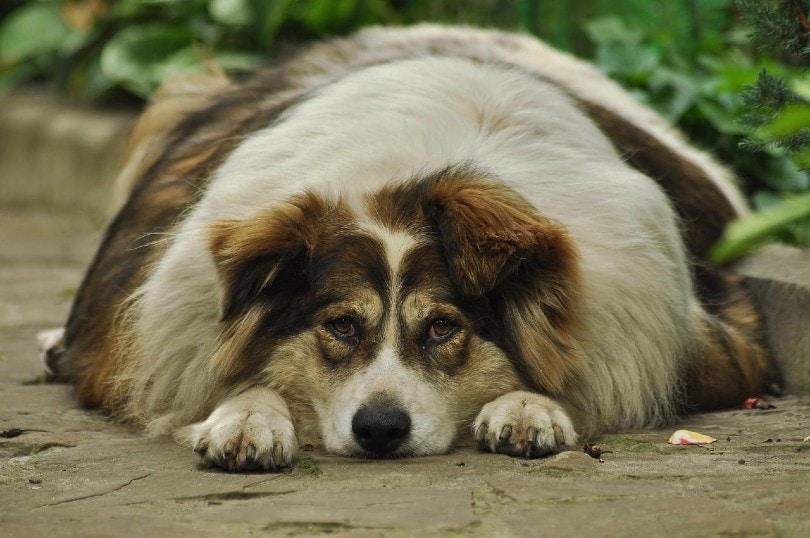
Why Do Dog Food Manufacturers Use Cornstarch?
Even though there’s a small chance of an allergic reaction, most dogs don’t have allergies to cornstarch, so the risk is very low. Cornstarch also, as in human food, gives dog food a thicker consistency. Since dog food companies are in business to make money, and cornstarch is a cheap source of energy, it’s used frequently in dog kibble. In short, until the day when many dogs are allergic to it, dog food manufacturers will continue to use cornstarch in their recipes. It’s cheap, provides energy, and most dogs have no problem digesting it.
Final Thoughts
As we’ve learned today, dogs can eat corn starch, but it’s not particularly healthy for them. Cornstarch provides energy and makes kibble thicker and (possibly) more enjoyable. However, even though they provide energy, starches like cornstarch are not a necessary nutrient for dogs. In other words, although they won’t die or get sick from it, cornstarch isn’t an ingredient that should be fed to dogs in high amounts.
Unfortunately, since it’s a cheap energy source, dog food companies use cornstarch and other starches a lot, so purchasing a kibble for your dog that doesn’t contain cornstarch can be difficult, if not impossible.
Featured Image Credit: Halil ibrahim mescioglu, Shutterstock




